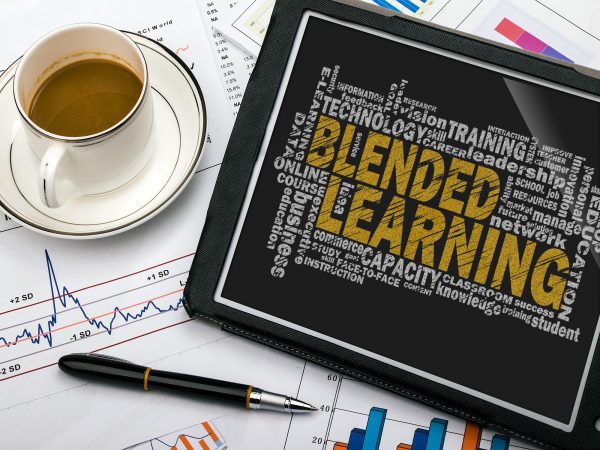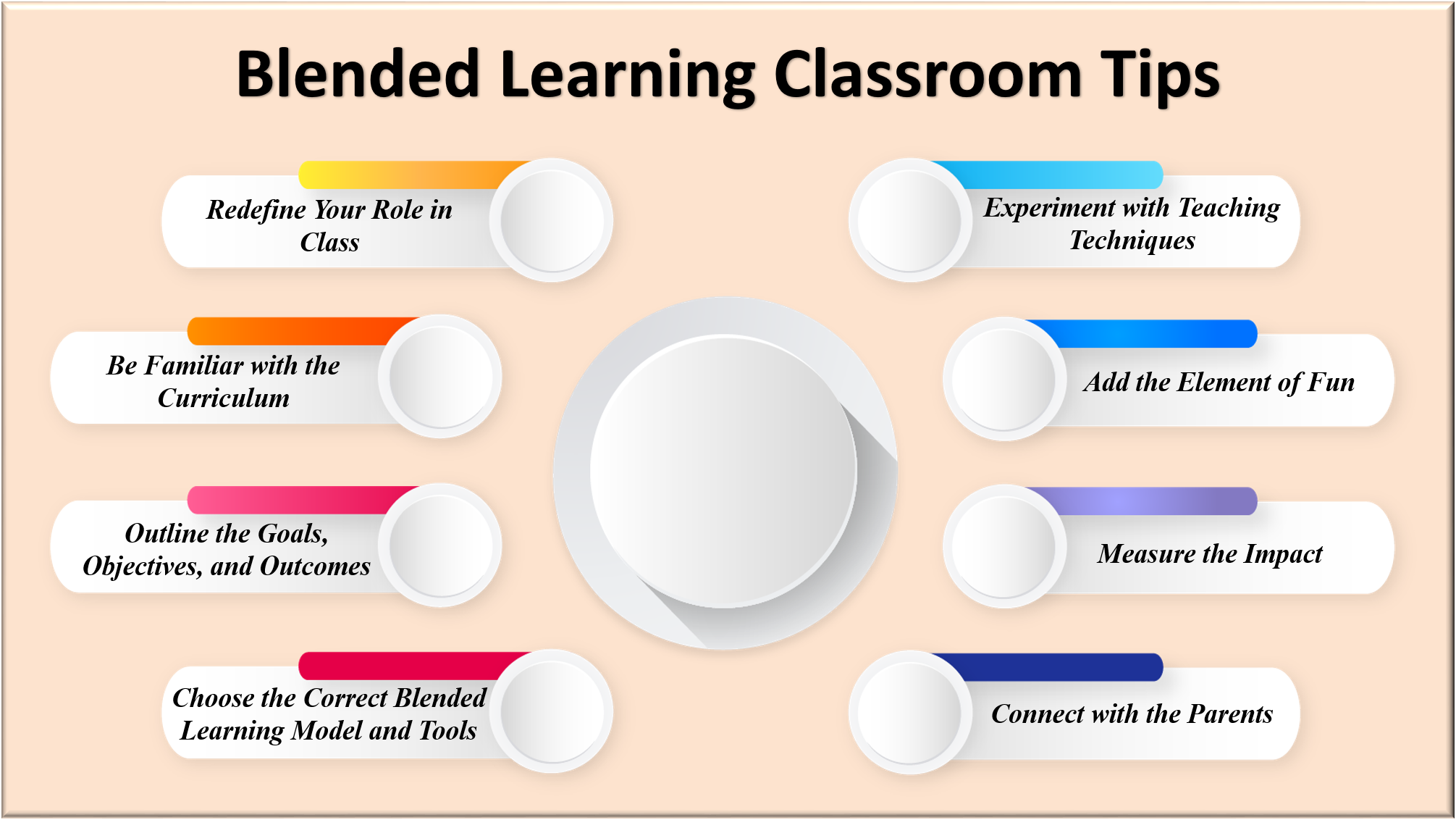
8 Tips to Set-Up a Blended Learning Classroom
Blended Learning or Hybrid Learning is a modified teaching and learning method employed in modern classrooms. The blend of traditional and online teaching brings out the best in students and encourages participation in learning. Whether it is Flipped Classroom, Project-Based Learning, or any other type of blended learning, this teaching methodology works best to promote interactive learning.
Moreover, this method makes it easy to achieve the desired aims and objectives of learning with appropriate Blended Learning Strategies. However, the task of setting up a blended learning classroom can sometimes be challenging for a teacher. Here are 8 tips to set up a blended learning classroom that works well for most learning situations.
1. Redefine the Teacher’s Role
A teacher’s role in a blended learning classroom is not limited to teaching. Rather, a teacher acts as a guide who facilitates learning and assigns value to the course through various activities. Moreover, the responsibility of assessing the learners’ performance through the course also rests on the teacher’s shoulders.
Additionally, the blended learning method requires more interaction between the teacher and learners in comparison to the traditional teaching method. Therefore, teachers must create a conducive environment for the active participation of learners. To do so, the use of the right tools and technology is important. Thus, a teacher’s role expands to cover a wider range of responsibilities in a blended learning environment.
2. Familiarity with the Curriculum
The curriculum lays the foundation for learning in a classroom. It defines a set of subjects and areas of learning in the scholastic and co-scholastic realms for the holistic development of the learners. Thus, it acts as a guide for the teachers. It helps them create lessons and activities for learners which the students utilize to acquire the skills specified in the curriculum.
The proper implementation of the curriculum requires a set of pre-defined tasks that the learners must perform. Therefore, teachers must be familiar with the curriculum and choose the tools and resources that can best serve to fulfill the learning areas prescribed in the curriculum.
3. Outline the Goals, Objectives, and Outcomes
Well-defined goals and objectives are easy to achieve. They help lay a clear focus on the targets. Thus, it is important to define the goals and objectives of a lesson beforehand. Moreover, defining the objectives helps assign value to the goals and paves the way for better outcomes.
Defining the outcomes of learning along with the goals and objectives is crucial. These help teachers assess the performance of the learners. Also, defining the outcomes gives the learners an insight into how they are expected to respond to the lesson.
4. Choose the Correct Blended Learning Model and Tools
There are various models of blended learning exclusively designed to cater to different learning needs. These models work by engaging learners in different ways to achieve the desired learning outcomes. Thus, a teacher must choose the right blended learning model for the classroom that engages the learners and takes them on the right path of learning.
Additionally, choosing the right tools for setting up a blended learning classroom is important. The use of the right technology and tools helps a teacher deliver an effective lesson. Also, it promotes better learning and retention among learners.
5. Experiment with Different Teaching Techniques
The method of teaching impacts lesson delivery as well as the learning outcomes. The method adopted by a teacher must be in accordance with the curriculum. Thus, the teacher should use a method that works well to engage the learners and strives to achieve the aims and objectives of the course.
A blended learning classroom offers opportunities to the teachers to experiment with the teaching techniques and find what works best for their learners.
6. Add the Fun Element
Learning with fun is the ultimate formula for a better learning experience. Concepts learned while having fun induce better learning and retention. Thus, a blended learning classroom also requires the addition of an element of fun in the learning process.
Therefore, teachers must include games and activities that engage the learners and promote learning while they have fun. These practices can be introduced in the form of assessments as well. This motivates the students to perform better in the class.
7. Measure the Impact
Learning without assessment is a waste of the collective efforts of teachers and learners. Assessments play a crucial role in the teaching-learning process. They measure the progress of the learners and determine whether the learning outcomes are achieved. Moreover, a teacher must set and clearly outline the expectations for the learners. This works as a stimulus for them and ensures that they achieve the desired learning goals and objectives. Following this, the learners must get clearly instructed assessment tasks that measure the level of learning and skills acquired by them.
8. Connect with the Parents
Parents are the first teachers. They monitor and instruct their children at home and thus can contribute to the learning process. Teachers must adopt a strategy to engage the parents in the learning process as well. Various forms of social media interactions can help initiate this process.
Additionally, parents can assist learners in certain activities and help them perform better. Informing the parents about their child’s progress also helps keep a check on the learner’s progress.

Blended learning classrooms are all about interactive and fun learning. A teacher is responsible for creating the right environment that can promote better learning. The tips mentioned in this article render a helping hand to teachers to move a step further towards setting up an effective blended learning classroom.
No comments:
Post a Comment